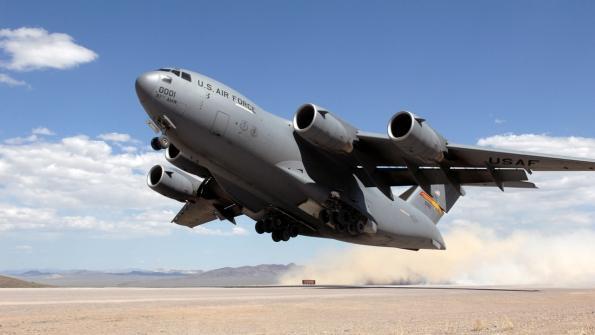
The U.S. Defense Logistics Agency (DLA) modified an existing contract to purchase 8,000 ventilators from four companies pegged at $84 million as part of the Pentagon’s response to combat the novel coronavirus.
“This will be a time-phased delivery over the next several months and we expect [the] order to begin shipment within the next few days, with 1,400 delivered by early May,” Pentagon spokesman Air Force Lt. Col. Mike Andrews said in a statement. The delivery locations will be decided by the Federal Emergency Management Agency (FEMA).
DOD’s Joint Acquisition Task Force is integrated with FEMA’s National Coordination Center to communicate demand signals for medical products to industry, develop capacity and identify fragile areas in the defense industrial base.
“The department continues to partner with industry to retool and remission production lines to manufacture masks, gowns, ventilators and other critical personal protective equipment,” Andrews said. But DOD has not executed any Defense Production Act efforts that fall under Executive Order 13909 that President Donald Trump issued March 18.
Additionally, DLA is supporting the U.S. Navy’s hospital ships, USNS Comfort (T-AH-20) and Mercy (T-AH-19), by supplying $2 million in pharmaceuticals and medical supplies, 975,000 gal. of fuel, food and repair parts. The Comfort is aiding New York in COVID-19 relief efforts by accepting patients with other ailments to free up hospital beds, and the Mercy is providing the same service in Los Angeles. The Defense Threat Reduction Agency has supported the delivery of six C-17 shipments of 3 million COVID-19 test kit swabs distributed to U.S. medical professionals.
Separately, the Defense Department (DOD) processed several hundred contracts and orders related to COVID-19 activities for transportation, communications and medical supplies. The Defense Contract Management Agency is implementing a mass modification to roughly 1,500 contracts to raise the limits on progress payments to 90% for large businesses and 95% for small businesses.
“This will provide immediate cash flow to industry, especially small businesses in the supply chain, once incorporated into the contract,” Andrews said. “The department has a high expectation level that prime companies are also ensuring cash flow is moving to small businesses in their respective supply chains.”





